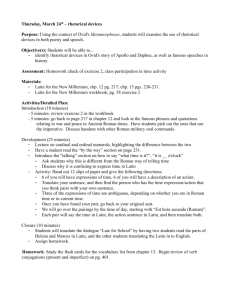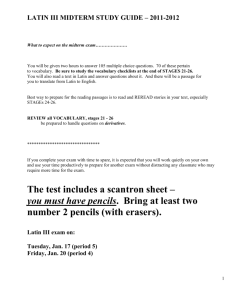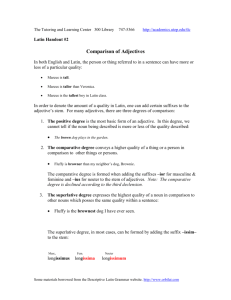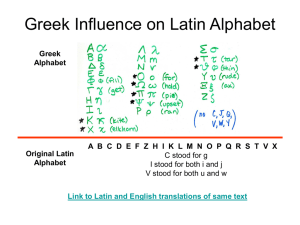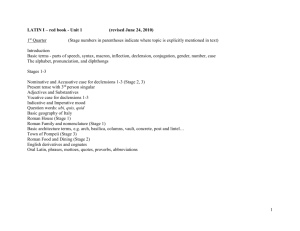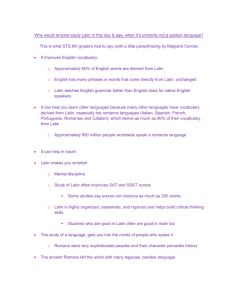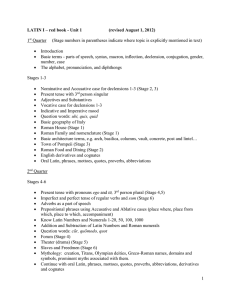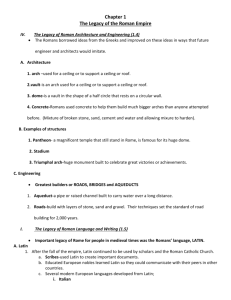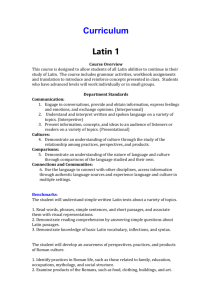Course Overview - Garden City Public Schools
advertisement
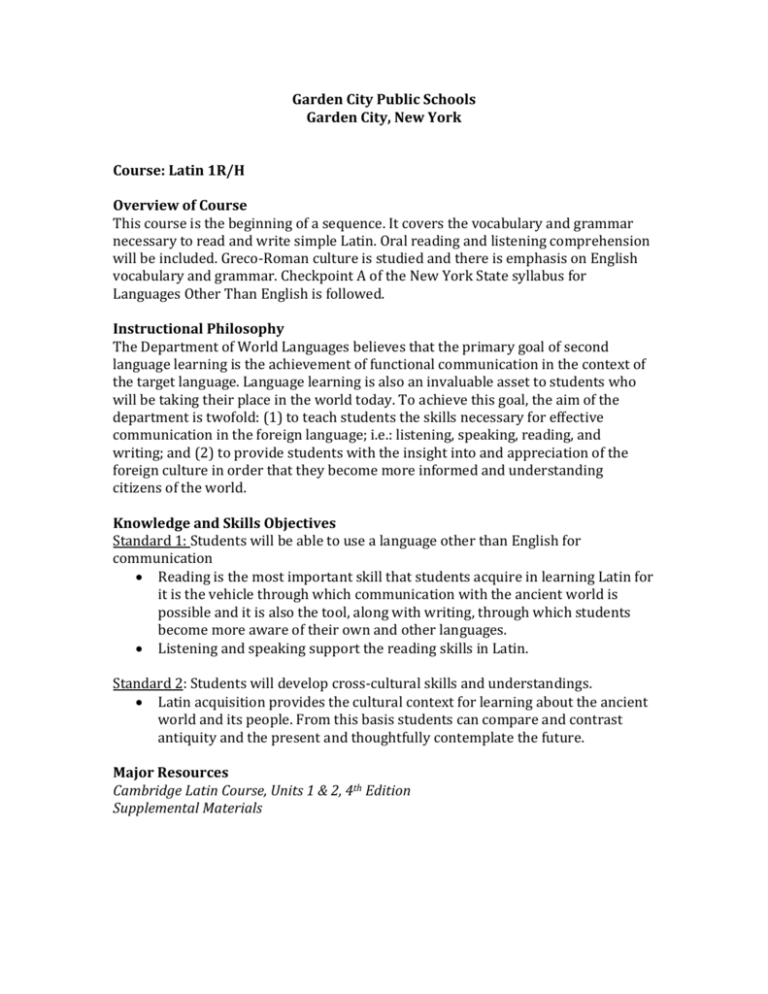
Garden City Public Schools Garden City, New York Course: Latin 1R/H Overview of Course This course is the beginning of a sequence. It covers the vocabulary and grammar necessary to read and write simple Latin. Oral reading and listening comprehension will be included. Greco-Roman culture is studied and there is emphasis on English vocabulary and grammar. Checkpoint A of the New York State syllabus for Languages Other Than English is followed. Instructional Philosophy The Department of World Languages believes that the primary goal of second language learning is the achievement of functional communication in the context of the target language. Language learning is also an invaluable asset to students who will be taking their place in the world today. To achieve this goal, the aim of the department is twofold: (1) to teach students the skills necessary for effective communication in the foreign language; i.e.: listening, speaking, reading, and writing; and (2) to provide students with the insight into and appreciation of the foreign culture in order that they become more informed and understanding citizens of the world. Knowledge and Skills Objectives Standard 1: Students will be able to use a language other than English for communication Reading is the most important skill that students acquire in learning Latin for it is the vehicle through which communication with the ancient world is possible and it is also the tool, along with writing, through which students become more aware of their own and other languages. Listening and speaking support the reading skills in Latin. Standard 2: Students will develop cross-cultural skills and understandings. Latin acquisition provides the cultural context for learning about the ancient world and its people. From this basis students can compare and contrast antiquity and the present and thoughtfully contemplate the future. Major Resources Cambridge Latin Course, Units 1 & 2, 4th Edition Supplemental Materials Latin 1 Course Outline I. Introduction to Latin and the World of Ancient Rome A. Roman alphabet and pronunciation B. Origin of and history of Latin C. Simple noun-verb sentences D. Roman house E. Roman dress F. Roman meals G. Role of Women H. System of Names I. Greetings and Salutations II. Introduction to Noun Declensions and Verb Conjugations A. Three declensions of nouns B. Nominative and Accusative cases C. Conjugating verbs D. Life in Pompeii III. Verb Tenses A. Present B. Imperfect C. Perfect D. Lack of subject pronoun E. Freedmen in Roman Society F. Death and Burial in the Roman world IV. New Cases; Intro to Comparative and Superlative Adjectives; Questions A. Dative case B. Comparative and Superlative Adjectives C. Questions D. Gladiators E. The Baths F. Education G. Elections H. Eruption of Vesuvius and Destruction of Pompeii V. in Brittania A. Infinitives B. Irregular Verbs volo, nolo, possum C. Use of –que D. Britain, pre- and post-Roman E. Gaius Salvius Liberalis F. Adjectives and Agreement G. The Celts H. Pluperfect Tense VI. Introduction to Classical Mythology A. Why mythology? B. Creation beliefs C. Specific Roman gods D. Major Olympian deities E. Derivatives in English from classical mythology F. Mythological themes in art, music, advertising, etc. VII. Place To, From, and Where: Uses of Prepositions and their Cases A. The Ablative case and its prepositions B. Prepositions taking the accusative case


